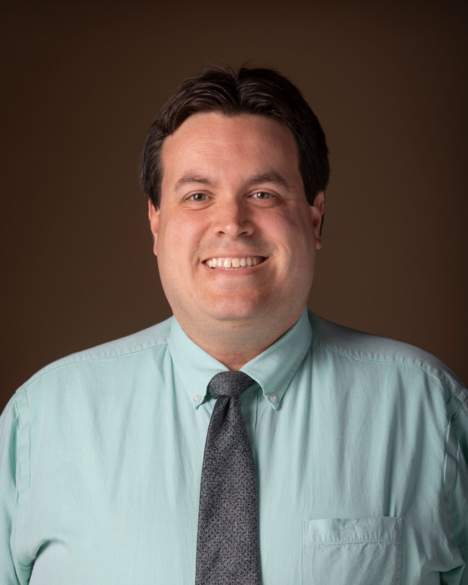Texas State lands NSF grant to study, improve language use in algebra instruction
Jayme Blaschke | June 16, 2020

Cody Patterson, an assistant professor in the Department of Mathematics at Texas State University, has received a $445,000 National Science Foundation grant to study ways to improve the teaching of algebra in middle and high schools to better prepare students for the rigors of college algebra.
The three-year interdisciplinary project, "Reasoning Language for Teaching Secondary Algebra (ReLaTe-SA)" is a Level I Exploratory project in the NSF's teaching strand of the Discovery Research PreK-12 (DRK-12) program.
Patterson said the project will examine three main questions: How do middle school and high school math teachers use language and algebraic reasoning when explaining common concepts and procedures? How can mathematics teacher-educators help expand that toolbox for teachers to help make procedures and concepts seem sensible to students? And can mathematics teacher-educators and classroom teachers collaborate on developing activities and lessons for students to engage productively with those concepts?
"College algebra is a major choke point in the undergraduate science, technology, engineering and mathematics (STEM) curricula for students who want to study subjects like mathematics, computer science, biology, engineering and chemistry," Patterson said. "This is not something we blame teachers for. Teaching algebra is a really hard problem, and something we think has to be addressed productively at all levels of the system.
"One theory we have about where college algebra is falling short is that students are getting a really fast review of concepts they encountered in high school, but perhaps not in a way that was reasoning rich and that connected with concepts together with one another," he said. "Students experienced all of these algebraic concepts as separate, isolated procedures they're expected to mimic without reasoning, without a lot of sense making."
Patterson is working to develop a "Survey of Algebraic Reasoning and Language" that is meant to get an idea how teachers use language to describe and convey their own understanding of algebraic concepts and problem-solving strategies. A pilot program of the survey will be launched with math teachers in San Antonio ISD later this summer.
"The ideas is not so much to ask teachers directly how they would explain something to students, but to help us understand some of the tools they have at their disposal in making sense of algebraic procedures and concepts for themselves, because whatever we would expect teachers to provide for students in the classroom, we think it is going to be some subset of the mathematical understanding the teachers have for themselves," Patterson said. "We were also expecting to start a profession development program this summer for San Antonio teachers, but it was delayed due to COVID-19.
"We would explore algebraic concepts in-depth together and explore them across different grade levels. Then we would work together to develop some activities that could be used in the subsequent school year that engage students in reasoning-rich opportunities to explore algebraic problems and concepts," he said. "All of this would be happening alongside observations we would be doing of teachers' classrooms to learn a little bit more about how teachers actually use language and reasoning in the classroom, because that kind of information can't be totally captured by a survey."
Share this article
For more information, contact University Communications:Jayme Blaschke, 512-245-2555 Sandy Pantlik, 512-245-2922 |